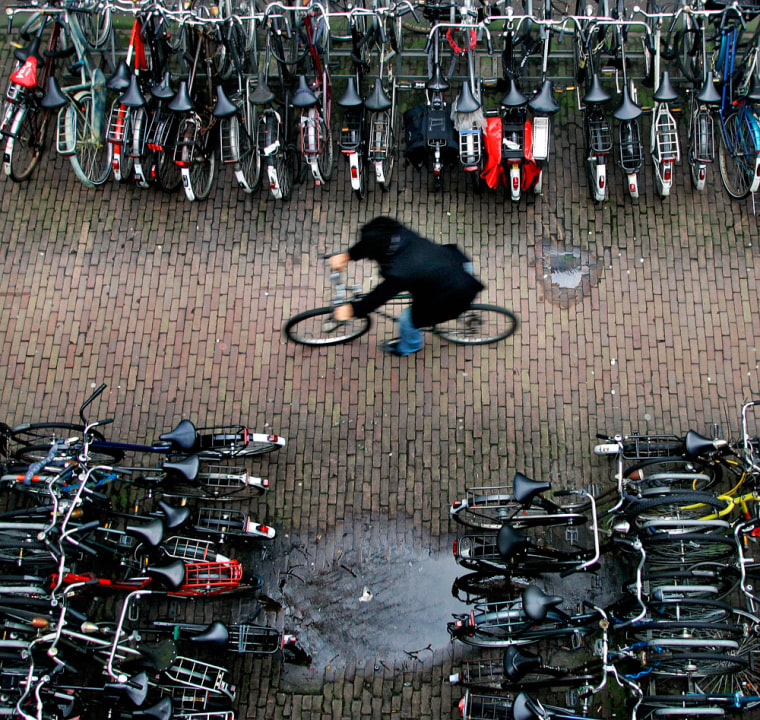Everyone knows there are things they should—and shouldn't—do to help the environment. Even so, most people aren't going to completely avoid planes as a way of reducing greenhouse gases. Here are a few reasonable courses of action that every traveler can and should take.
Unplug your appliances
Many TVs, DVD players, microwave ovens, computers, cell-phone chargers, and other devices drain electricity even when they're not in use. Also, lower your thermostat before leaving for winter vacation, and make sure the air-conditioning is off while you're away in the summer. Turn the hot water heater down to its lowest setting—or shut it off completely, though that'll require you to relight the pilot light when you get home.
Think about how you travel
Takeoff and landing account for a large portion of the fuel use and emissions of flights, so go with direct flights when you can. If possible, take the train instead of a short-haul flight. If you're on a road trip with a group, squeeze into as few cars as possible.
Forget disposable products
Nix the single-use camera, as well as take-out meals with wasteful packaging and plastic utensils. Instead, choose sit-down restaurants or food from the local market. Bring reusable containers for water, coffee, and leftover food. Refilling a bottle at a water fountain is much more eco-considerate than buying water that's been shipped from France or Fiji or somewhere else far away.
Think before you buy
Rather than buying stuff that you'll use sparingly—tents, beach chairs, voltage converters—borrow them from friends. (And offer your gear to friends for their vacations.) At trip's end, give maps and guidebooks to other travelers, or leave them at the hotel for future guests. When shopping during your vacation, take a tote or backpack—people tend to reuse plastic bags a lot less while they're away from home. And remember that souvenirs that look kitschy and fun on the shelf often end up in a landfill.
Eat with a conscience
Think about where the food on the menu actually comes from. Ask your waiter what's local and choose something produced nearby over something that had to be trucked in.
Treat your hotel room like it's your own house
Turn the lights off when you leave, and while you're at it, turn off the air-conditioning, too. It may mean 10 minutes of being uncomfortable upon your return, but you'll survive. The fact that you're not paying the hotel's water bill is no reason to let the faucet run when brushing your teeth.
Reuse your towel
You don't wash your towels and sheets every day at home, right? (If you do, maybe you should reconsider.) You don't need them changed daily when traveling, either. Tell the hotel that you're fine using linens a few days in a row. In many hotels, it's understood that if you fold your towel and hang it neatly, housekeeping won't replace it. But just to make sure, let housekeeping know by calling the front desk or leaving a note. The detachable card at right should help get the message across.
Ditch the car
Walking, riding a bike, and taking public transportation are all better than riding in a car. With the money saved foregoing taxis and rental cars, book a nice hotel within walking distance of the sites you want to see.
Use rechargeable gadgets
They have less environmental impact than ones that require disposable (alkaline) batteries. Should a device go haywire, don't just toss it in the trash. Batteries contain toxic materials, so you should recycle them when you get home. For recycling locations, go to rbrc.org or earth911.org. If you have the option, choose a digital camera: You'll print only the photos you actually want, and they use fewer chemicals than film cameras.
Speak up!
Hotels, resorts, airlines, and tour companies actually do read comments left by customers. So take a moment to scribble your disappointment in the recycling program—or lack thereof. And by all means, encourage companies doing the right thing to keep up the good work.
